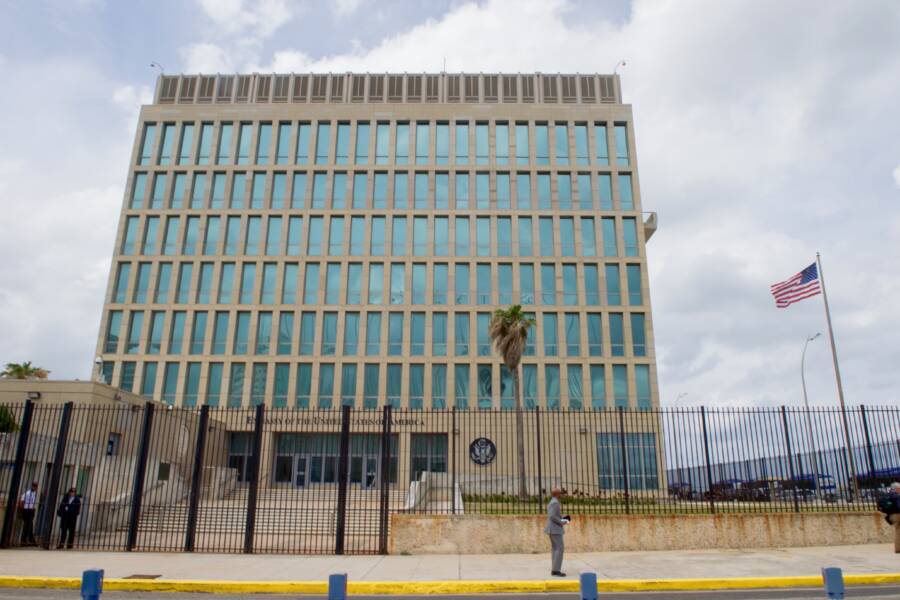Havana Syndrome, The Mysterious Illness Targeting Diplomats

Public DomainThe United States embassy in Havana, Cuba.
In 2016, 21 American and Canadian diplomats reported suffering from a range of unexplained symptoms while working in Cuba, including ear ringing, nausea, insomnia, memory loss, and balance disturbances. Sufferers often reported that their symptoms appeared very suddenly, and that they first experienced them while at home or in hotels.
This phenomenon has come to be known as Havana syndrome. At first, government officials suspected that this mysterious condition was the result of a malicious attack from some sort of unidentified “sonic weapon.”
The Cuban government adamantly denied any responsibility for the illness, and agreed to cooperate with U.S. officials in their investigations. Still, in 2017, the United States pulled many of its diplomats out of Cuba and expelled two Cuban diplomats from the United States amid growing concerns about Havana syndrome. The following year, the Canadian government withdrew the families of Canadian diplomats from Cuba, too.
Strangely, reports of Havana syndrome began popping up among U.S. officials in other locations across the globe, including Russia, China, Poland, Austria, India, and even the United States.
In 2024, a report from the National Intelligence Council found that it was very unlikely that Havana syndrome was the result of an attack by a foreign adversary. Rather, it was probably a culmination of preexisting conditions, environmental factors, and conventional illnesses. Given the global panic over Havana syndrome, some have suggested that the phenomenon is an example of mass hysteria.
Still, reports of the illness continue to surface among U.S. officials serving in diplomatic posts around the world. According to a U.S. Government Accountability Office report, 334 Americans have been treated with relevant symptoms as of July 2024.





